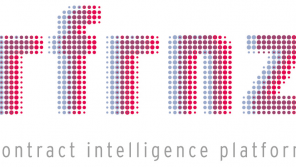Legal Tech is more popular and present than ever. The market for Legal Tech Startups is booming and has attracted a lot of interest from investors. We want to bring 10 promising startups to you (in alphabetical order).
1. Brightflag
Brightflag enables organisations to take control of their legal spend with AI-powered software that’s easy to use and backed by proactive customer support. Brightflag processes billions of dollars of legal spend annually on behalf of its customers, resulting in hundreds of millions of dollars in savings and tens of thousands of hours in avoided administrative work. Founded in 2014, Brightflag serves a global community of in-house legal teams and their vendors from its offices in Dublin, New York, and Sydney.
2. Bryter
Bryter is the leading no-code service automation platform that helps business experts in departments like accounting, legal, compliance and marketing who do not have any special technical or developer skills build digital self-service applications. Using the BRYTER platform, business users can digitise and automate repetitive services in a fraction of the time and at much lower costs.
The startup was founded in 2018 and operates offices in Berlin, Frankfurt, London and New York. The software supports professionals at BakerMcKenzie, HoganLovells, Taylor Wessing, Simmons&Simmons, ING, Telefónica, and other companies around the globe.
Since its launch, over 2,000 business applications and workflows have been implemented on BRYTER. ´BRYTER is all about helping organizations streamline their service, internally and externally´ says Michael Grupp, CEO and co-founder.
3. Casetext
Casetext is a widely used A.I. legal research technology, which has been adopted across the legal market from the largest Am Law 100 law firms to solo practices. Its award-winning technology offers both conventional search functionality and its CARA A.I. powered contextual search, focuses on the context of a research to help find on-point authorities faster. Founded by a team of former litigators from top law firms, as well as Ph.D. data scientists and leading A.I. engineers, Casetext helps legal researchers find the best cases, faster, including many that they would otherwise miss.
4. Farewill
This startup revolutionises the way people deal with death and wills. It makes the process of writing or changing the will extremely easy and more accessible. Clients can also get probate on this website and arrange a cremation. It is also much more affordable than the traditional ways of dealing with this issue. And any legislative updates are applied automatically to the will.
5. Ironclad
Ironclad is one of the top makers of enterprise software for managing contracts. L’Oréal, Staples, Mastercard, and other leading innovators use Ironclad to collaborate and negotiate on contracts, accelerate contracting while maintaining compliance, and turn contracts into critical carriers of operational business intelligence. It’s the only platform flexible enough to handle every type of contract workflow, whether a sales agreement, an HR agreement, or a complex NDA. The company was named one of the 20 Rising Stars on the Forbes 2019 Cloud 100 list and is backed by leading investors like Sequoia, Bond, Accel, Y Combinator, Lux, and Emergence.
6. Law Geex
LawGeex uses AI to review contracts based on your predefined policies. Unlike solutions that only flag unacceptable or missing clauses, this startup redlines the contract in real-time just like a human lawyer. They even handle live negotiations with the counterparty.
7. Legalist
Legalist provides legal data analytics services designed to help small businesses to get access to the justice system. Legalist then evaluates cases with a proprietary algorithm that estimates the likely duration of the case, and odds of winning, based on factors such as the judge, court type, lawyers for both parties, and other facts about the case. Based on its guidelines for risk and expected return, the company then decides whether or not to underwrite the case.. It shows how technology can help understand the justice system especially in the U.S.
8. Luminance
Luminance is a British startup that provides an effective platform that works for any language and jurisdiction. It is designed the way that the more professionals use it, the better it gets. The main benefit of this technology is that it saves lawyers an enormous amount of time. It conducts document search and analysis and spots any abnormalities in the texts. Instead of hours upon hours of reading hundreds of pages, a lawyer can now use this software.
9. Notarize
Notarize is a digital trust provider – a platform that integrates technology with live human interaction to establish identities. The startup offers digital identity proofing and authentication services, including a market-leading notary public platform to allow any person or organisation to get their documents notarised online, 24/7. Notarize’s mission is to help people execute the most important transactions of their lives and make notarisations more convenient, secure, authenticated, integrity-preserving, and non-repudiable. The goal is trust in a digital age through protected online services and transactions. Notarize’s electronic notary public service is offered to customers via iOS, Android, and the Web. Pat Kinsel founded the company as 16 Pins in May 2015. Notarize is headquartered in Boston, Massachusetts but the company operates as fully-remote as of 2020.
10. Ravel Law
Ravel Law offers research, analytics, and data tools to investigate open source court documents to predict the possible outcome of a particular case. It uses natural language processing and machine learning algorithms together with the open current and historical legal documents. This software can find all relevant documents according to the judge, similar cases, or attorney. It can also make predictions on the possible judge’s decision based on their decision made in similar cases previously. This is an astonishing type of research and data analysis that helps to build the case.




